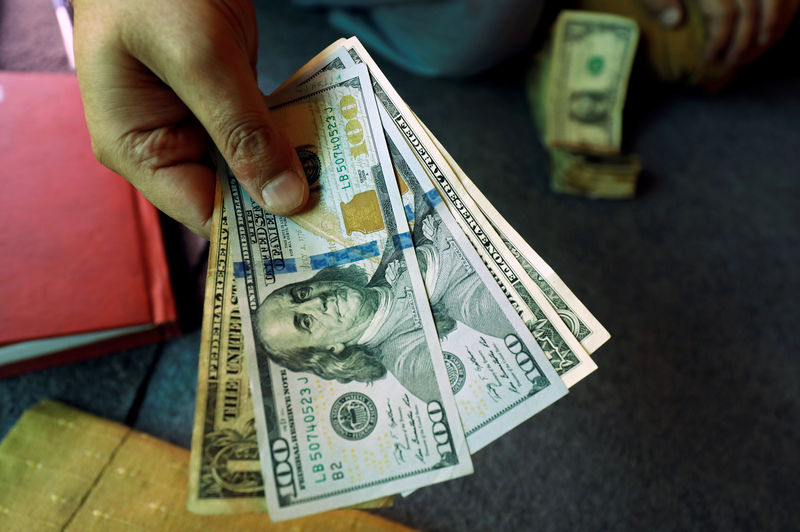Investing.com -- The dollar was a touch lower against the euro and yuan to start the week in Europe, after slightly better-than-expected economic data out of China eased concerns a little over the global economic slowdown.
China’s economy grew at the slowest pace since quarterly records began in the three months to June, according to official data released earlier. Gross domestic product was up only 6.2% from the second quarter last year, down from a rate of 6.4% in the first quarter.
However, there was relief as various components of GDP came in stronger than forecast in June: industrial production was up 6.3% on the year, while retail sales growth accelerated to 9.8% on the year. However, Berenberg Bank’s chief economist Holger Schmieding warned in a note that the monthly data “are too volatile to herald an immediate upturn,” noting that the June output data were driven by automakers pre-empting a change in regulations.
The news pushed to dollar down 0.1% against the yuan to trade at 6.8721 by 3 AM ET (0700 GMT), although that was still well within its recent range.
The euro also benefited from the data, reflecting the increased correlation between the currencies as Eurozone growth comes to depend more and more on Chinese demand. It rose to $1.1278, a four-day high.
The data also lifted commodity prices, helping the South African rand to test a five-month high against the dollar.
Analysts at Nordea Markets argued in a research note that the euro may have further upside in the near term against the dollar, owing to the respective liquidity dynamics in the two currencies. While the European Central Bank’s proposed round of new long-term loans looks unlikely to stop excess liquidity in the banking sector shrinking, the chance of an interest rate cut and an end to balance sheet reduction from the Federal Reserve suggests dollar liquidity will improve.
Elsewhere, the Turkish lira strengthened a little despite the ongoing concerns of a major split between the country and the U.S., after Turkey accepted delivery of a Russian-made state-of-the-art anti-aircraft system late last week. The U.S. has indicated that it may consider sanctions against Turkey, a NATO member, in response. Adding to the pressure are fears for the stability of economic policy: over the weekend, President Recep Tayyip Erdogan again promised lower interest rates by the end of the year, after installing a head at the central bank earlier this month.
“We have a certain target in interest rates until the end of the year,” the broadcaster Haberturk quoted Erdogan as saying. “We will reduce this in a serious way. Once this is reduced you will see inflation reduce significantly.”
